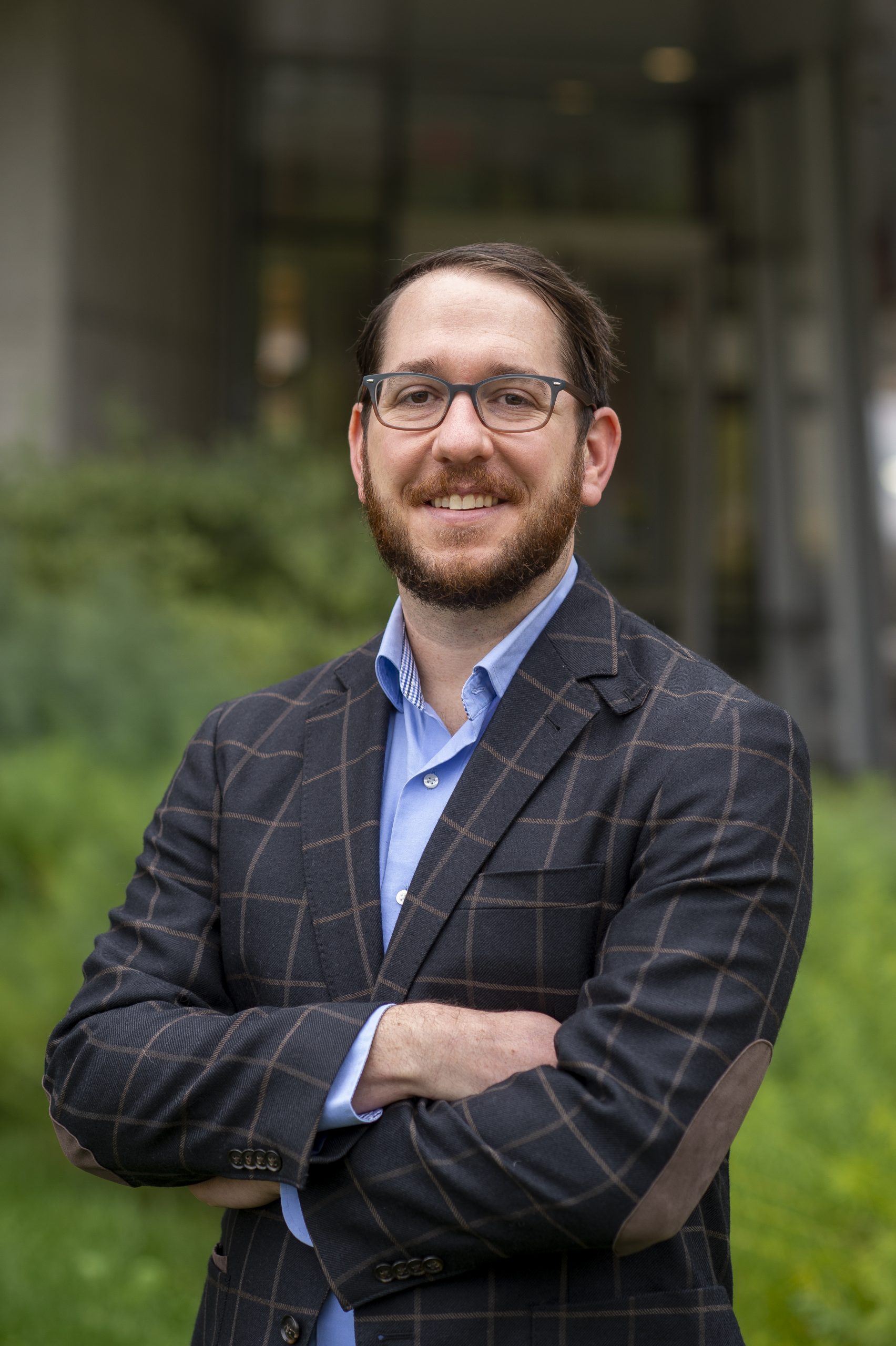
- This event has passed.
CBE Seminar: “Autonomous Soft and Colloidal Matter Fueled by Chemical Reactions” (Taylor Woehl, University of Maryland)
September 18, 2024 at 3:30 PM - 4:30 PM
Abstract:
Biological systems utilize networks of biochemical reactions to drive autonomous and dynamic processes. Examples include the dynamic polymerization of microtubules and the dynamic min protein system in E. Coli. In contrast, synthetic soft and colloidal matter generally requires active stimulation to undergo reconfiguration, such as application of external fields or manual changes in solution chemistry. These materials exhibit singular responses to stimulation, such as shape change or self-assembly, but lack temporal control. In recent years, synthetic chemical reaction cycles have been discovered that enabled active soft materials that exhibit transient responses to a single chemical stimulus. This seminar will describe recent work in Professor Woehl’s lab that utilize chemical reactions to drive transient and autonomous responses in colloids and hydrogels. In the first of three vignettes, I will discuss the colloidal interactions occurring during chemically fueled assembly of micron sized colloids. Here, aqueous colloids are exposed to a carbodiimide chemical fuel that temporarily renders their surface hydrophobic. We systematically identify ranges of fuel concentration that lead to no assembly, transient assembly, and irreversible assembly of colloids. Experimental measurements of colloid surface charge and hydrophobicity inform a colloidal interaction model that corroborates the experimental observations. This work identifies electrostatic and hydrophobic forces as critical for controlling transient assembly and establishes a colloidal interaction model for rationally choosing fuel concentrations for colloids of varying size. In the second vignette, I will discuss the use redox reaction cycles to generate transient protein hydrogels. Here, a strong oxidizer and weak reducing agent are concurrently added to denatured serum albumin, which causes formation of a transient disulfide crosslinked hydrogel. We found that increasing the denaturant concentration decreased the lifetime of the hydrogel. Biophysical measurements revealed this to be due to changes in the unfolding state of the protein, which mediated the concentration of free cysteines available to react with the oxidizer. This work uncovered a novel approach to tune the lifetime of transient protein hydrogels and established a connection between molecular protein structure and macroscopic hydrogel properties. In the final vignette, I will present recent work on chemically fueled shape changes in porous hydrogels. Prior work has demonstrated slow responses of polymer hydrogels to chemical fuels, typically on the order of ~10 hours. Here we utilize a combination of co-polymer hydrogels, porosity, and pH clock reactions to reduce the reconfiguration time to ~10 minutes. This work demonstrates the most rapid autonomous shape change in chemically fueled hydrogels to date.

Taylor Woehl
Associate Professor
Taylor Woehl is an associate professor in the Department of Chemical and Biomolecular Engineering at the University of Maryland, where he directs the Nanoscale Assembly and Electron Microscopy laboratory. He obtained his Ph.D. in chemical engineering in 2013 from the University of California, Davis. Prior to his appointment at University of Maryland, he held appointments as an NRC postdoctoral fellow at NIST and an assistant scientist at Ames Laboratory. Professor Woehl’s research interests include nanochemistry of metal nanoparticle synthesis, crystallization, active soft matter, and environmental chemistry. He has received numerous awards and honors, including the NSF CAREER award and the ACS PRF Doctoral New Investigator. He is currently the chair of the Liquid Phase Electron Microscopy Gordon Research Conference. His lab has published more than 60 research articles and is currently funded by the NSF, Air Force, and Army Research lab.
